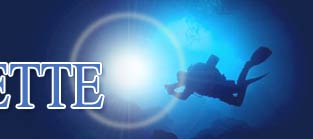Chapter One
The car flew out of the night, taking aim at the stranger crossing
the street. It made no effort to stop. In one horrible, grotesque
instant, car and body met. The victim tumbled like a rag doll
over the hood of the still accelerating vehicle. The awful thud of metal
impacting flesh and bone was followed by a second softer muffled sound
as the now misshapen form came to rest by the side of the road. Barely
audible moans could be heard, interrupted only by the sound of squealing
tires as the car fled into the darkness.
Dallas could do nothing but watch from the opposite sidewalk, his body
frozen in the shadows. His mind struggled vainly to absorb what he had
seen. Across the street from where he stood he saw a crumpled bundle
of humanity lying in the gutter and, off in the distance, the car’s taillights
growing dim.
Rousing himself to action, he ran to the body. The mortally wounded
man tried desperately to speak—but the words came slowly, every word
coming only with great effort.
“Listen,” the man said, between gasps, “beware … they … are …
watching. The … Order … must … find …”
“Beware? Who’s watching? Order?” Dallas was amazed the man could
even speak.
“Briefcase?” he said as he moved his bloodied hand in a futile gesture.
“Where’s … brief …?”
“Here, here it is,” Dallas said, retrieving it quickly. He could already see
the man wouldn’t have the strength to once again take possession of it.
“Look … inside. Find … le gren … find … the … fisherman. You …
must … find … them … the … Order … beware.”
Then there came the sound of air escaping, like the opening of the
valve on a tire, followed by silence as the body lay still.
With the briefcase still in his left hand Dallas knelt motionless over the
corpse. He was so stunned that he failed to see the approaching police car
until it screeched to a stop only a few feet away from him, its rapidly flashing
red and blue lights illuminating the darkness. Instinctively he looked up,
only to have to shield his eyes from the glare of the cruiser’s headlights.
He returned his gaze to the now brightly lit but lifeless body. What he saw
haunted him: the dead-eye stare of a man with a story that would never be
told. Dallas clutched the briefcase’s handle a little tighter.
“Step back on to the sidewalk, please,” one of the officers called out
matter-of-factly as he climbed out of the car. “An ambulance is on the
way.”
Dallas immediately obeyed while the second officer exited the cruiser
and made his way to the nameless victim. “Tell ’em to take their time,”
he said, leaning over the corpse. “No need to rush for this one.”
“Sir,” the first officer began robotically, without a hint that he was
bothered by the scene, “Is, um … was this man a friend of yours?”
“No, I don’t know him. I was just walking that way,” Dallas said,
pointing across the road, “and this gentleman here was crossing the street.
The car just came out of nowhere. The poor man had no chance to react.
The car drove right through him.”
“Through him?” the officer repeated.
“Yeah. It didn’t swerve or slow down. It just hit him and drove off.”
“Did he say anything before he died? Did he give you anything?”
His shock subsiding, the scientist in Dallas began to take over. His mind
filled with suspicion at such an odd question. Give me anything?
His eyes
darted between the two officers. The interrogator was shorter than his
partner, with pasty white skin and a belly that hung over his equipment
belt. To Dallas the second officer, a large and wiry black man, seemed
to be nothing more than a silhouette owing to the cruiser’s lights. Dallas
discreetly shifted his gaze up and down the street. It was only then he saw
that all the shops were closed. The road was empty. There was no one
in sight; no one at all. At that moment he realized he was holding the
briefcase as if it were his own.
“How did you get here so fast?” Dallas asked.
“We got a call,” the interrogator said as his partner moved away. “Let
us ask the questions, Okay? Now, did he say anything?”
“No.” Dallas paused, perhaps a moment too long. “He must have been
dead when I got to him.”
“Hmm.” The policeman sounded skeptical. “Got any ID?”
“ID? Sure,” Dallas said, reaching for his wallet.
“Your name is Dallas Roark?” The police officer sidestepped his way
over to his partner and showed him the license. Dallas could have sworn
the black officer cocked one eyebrow in a gesture of recognition, but the
policeman said nothing. Instead he turned and moved back toward the
crime scene. Dallas decided it was best to be friendly and engaging.
“Yes, that’s right. I’m an archaeology professor at—”
The officer cut him off. “Still live at this address?”
“Yes.”
In a few minutes, having exhausted his supply of questions, the policeman
returned Dallas’ ID and turned to face in the direction of his colleague. Dallas
stepped back slightly as the second man returned from a second inspection of
the body. They began speaking to one another in low voices.
“It’s not on him,” Dallas heard the second one mumble.
“What do you mean?” said the other. “It must be here somewhere.”
The distracted officers began shining their flashlights around the area.
Dallas instantly saw that what they were looking for must be in the
briefcase.
“Am I free to go?” he asked somewhat nervously. Receiving no reply,
he backed slowly away with his hand still clutching the case’s smooth
leather handle.
Receiving no objection to his initial retreat, he turned quietly and left.
Moving deliberately and, he hoped, inconspicuously, he turned left at the
first corner then quickened his pace.
Dallas knew he had committed a crime in taking the briefcase, and
while he didn’t know what was in it, he knew something was not right
about those two cops. No one else was around to witness or even hear
the hit-and-run. Who could have called? How did they show up so fast?
With all their questions, they never asked him to describe the car or if
he had been able to read the license plate. What were they really looking
for, and why?
Like most scientists, Dallas was a curious and observant man,
introspective by nature. He was typical of those in his profession—more
comfortable with the gentle pace of thorough intellectual inquiry than the
unexpected abruptness of tonight’s tragedy. He was usually content with
the role of scientific observer. This time, involvement had been thrust
upon him.
| page 2 |





